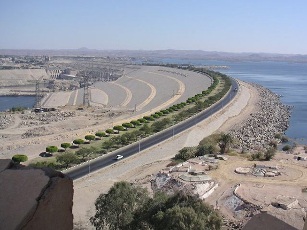Ethiopia urges Sudan and Egypt to implement panel’s report on Nile dam
By Tesfa-Alem Tekle
September 18, 2013 (ADDIS ABABA) – The Ethiopian government on Tuesday urged Sudan and Egypt to implement the final study report presented by the international panel of experts that was established to assess the impact of Ethiopia’s giant Nile dam project on downstream countries.

“Ethiopia accepts the report and stresses the need for Egypt and Sudan to do so,” spokesperson for the ministry of foreign affairs ambassador Dina Mufti said.
Cairo says the construction of the massive hydro-electric dam project will diminish its water share, becoming its prime water security concern.
Addis Ababa however argues the dam project will regulate the flow of water avoiding flooding, reduce siltation and will allow provision of clean and cheap energy to Sudan and Egypt.
“Construction of the dam is underway taking into consideration the benefits of lower riparian countries” Mufti added.
The official dismissed some reports from Egyptian outlets and government officials who are labeling the project as a major threat to Egypt’s safety and security.
He said the reports are inappropriate and misleading.
An official told Sudan Tribune that nearly 30% of construction of the multi-billion power project is completed.
When the dam project – which will have power generation capacity of 6,000 MW – goes operational, the horn of Africa’s nation projects it will generate up to 2 million Euros per day from exporting hydro-electricity.
Although Ethiopia is a source to 85% of the Nile’s water resources, a colonial era treaty, however, has allowed Egypt to utilize the lion’s share of the water resources.
The treaty effectively granted the North African nation a veto power against any dam project along the Nile River in upper riparian countries.
Sudan however, has expressed support to Ethiopia’s dam project putting it at odds with Cairo.
(ST)
